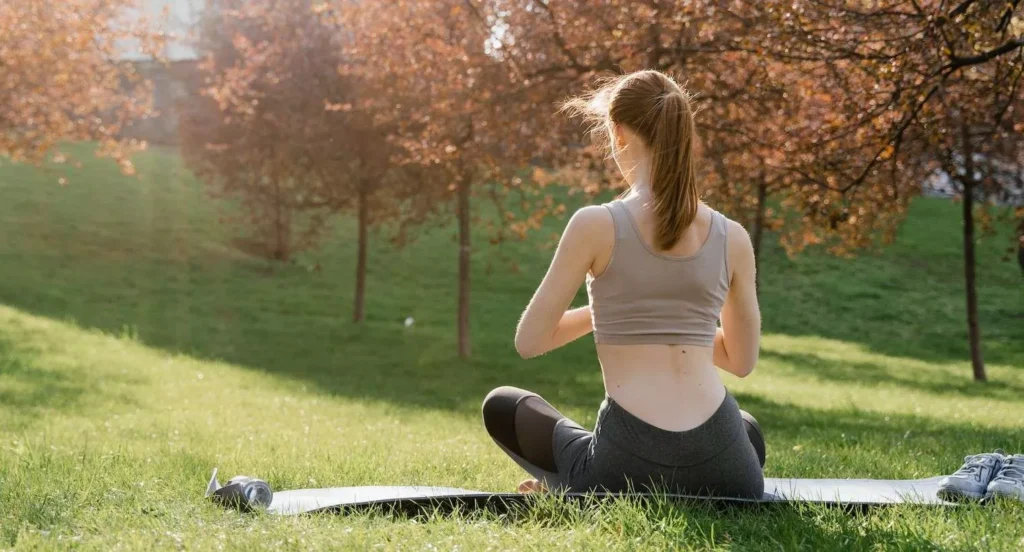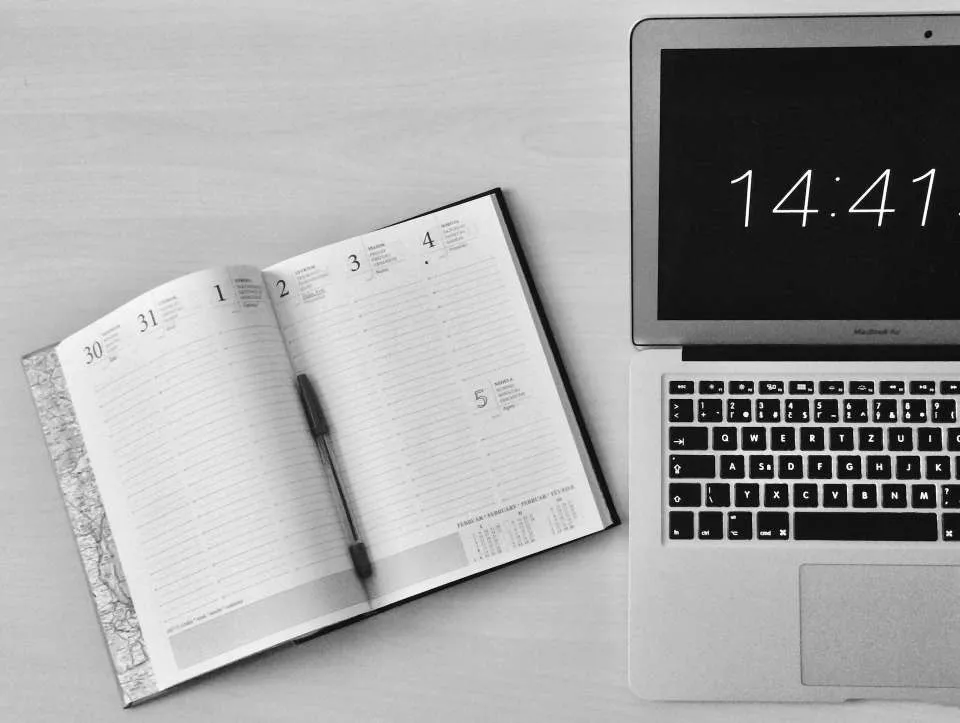Introduction
In a society where media representations of beauty and societal norms frequently create false expectations, developing a positive body image is crucial to general well-being and goes beyond personal goals. We will talk about how important it is to maintain a positive body image today and how it may have a huge impact on both our physical and emotional health.
Our perception of our bodies can either be a powerful tool or a major hindrance. Regardless of your body’s size, shape, or flaws, having a realistic and positive perception of it is essential to having a healthy body image. It is about accepting who you are and realizing that there are many different kinds of beauty.
On the other hand, struggling with a negative body image can have a domino effect of negative outcomes. Mental health suffers greatly as anxiety, low self-esteem, and self-doubt become enduring companions. The pursuit of an idealized body frequently leads to unhealthy habits like binge eating, excessive exercise, or even the emergence of eating disorders like bulimia or anorexia nervosa.
The toll is just as bad on a physical level. Chronic body dissatisfaction can lead to higher cortisol levels, which can exacerbate a number of health problems, such as high blood pressure and heart disease. These unfavorable feelings can also interfere with sleep cycles and impair immunity, leaving us more susceptible to disease
What Is a Healthy Body Image?
Key Characteristics of a Healthy Body Image
1. Acceptance
A balanced and positive view of your own body that is influenced by more than just how you look on the outside can be characterized as a healthy body image. It also includes a deep appreciation of the value and individuality of your body. It is a prism that helps you see yourself as valuable, lovely, and deserving of respect and love regardless of your actual size, shape, or perceived flaws.
2. Realism
A healthy body image is grounded in realism. It involves recognizing that bodies come in all shapes and sizes and that the airbrushed images we often see in the media do not represent the norm. Realism entails setting attainable and sustainable goals for health and well-being.
3. Self-Compassion
One of the most important things in developing a positive body image is self-compassion. It entails being kind and understanding to yourself in the same way that you would a close friend. Self-compassion enables you to react to your perceived shortcomings and setbacks with empathy and forgiveness, as opposed to harsh self-criticism.
4. Diverse Perspectives
Having a positive body image promotes appreciating different viewpoints on beauty. It acknowledges that people are drawn to a diverse range of body types and features and that beauty is a subjective concept. This viewpoint promotes acceptance and inclusivity for all people.
5. Focus on Functionality
Putting functionality above appearance is another indicator of a positive body image. You value your body for what it can do—how it lets you experience life, partake in activities you love, and promote your general well-being—rather than obsessing over how it looks.
6. Resilience
Developing resilience is a common step towards creating a positive body image. You gain the ability to resist peer pressure, criticism, and irrational expectations. This resilience gives you the ability to keep a positive view of yourself despite obstacles from the outside world.
7. Mindful Self-Care
Lastly, conscientious self-care is intimately linked to a positive body image. This is honoring and tending to your body’s needs rather than trying to achieve a certain look by starving it of food, exercising frequently, and getting enough sleep.
The Consequences of Negative Body Image
We covered the essentials of a healthy body image and its essential traits in the previous section. Let’s now acknowledge the sobering facts of what occurs to people who struggle with a negative body image. It is not just about how we see ourselves; it has a significant impact on both our physical and mental well-being.
Mental Health Implications
1. Low Self-Esteem
The steady decline in self-esteem that results from having a negative body image is arguably one of its most serious effects. It is difficult to feel good about yourself in any area of life when you\’re constantly unhappy with the way you look. This low self-esteem can affect relationships and career goals, among other things.
2. Anxiety
Unrelenting anxiety frequently accompanies a poor body image. Chronic worry and apprehension can result from the fear of not meeting society’s standards of beauty or of being assessed unfairly based only on appearance. Particularly social situations can cause stress and discomfort.
3. Depression
Depression can also result from a persistently negative body image. Feelings of inadequacy and continuous self-criticism can drain your emotional reserves. Suicidal thoughts, a persistent sense of sadness, and a loss of interest in once-enjoyed activities are all examples of depressive symptoms.
Physical Health Ramifications
1. Eating Disorders
Eating disorders are significantly more likely to develop in people who have a negative body image. An obsession with attaining an unattainable body ideal is frequently the root cause of disorders like bulimia nervosa and anorexia nervosa. Serious physical health problems, such as electrolyte imbalances, malnutrition, and organ damage, can result from these disorders.
2. Unhealthy Behaviors
The quest for an idealized body frequently results in unhealthy habits like extreme weight loss methods, overtraining, or crash dieting. These habits can have a disastrous effect on your health, impairing immunity, throwing off your metabolism, and leaving you weak and exhausted.
3. Physical Health Conditions
Negative body image-related chronic stress can be a factor in a number of physical health issues. Increased cortisol levels have been linked to immune system compromise, high blood pressure, and cardiovascular problems. In addition, sleep disorders, which are frequent in people who have a negative body image, can make these issues worse.
It is critical to realize that negative body image has effects outside of the mental and physical domains. They may also have an impact on social interactions, resulting in strained bonds and social isolation. Understanding these possible outcomes emphasizes how important it is to develop a positive body image for our general well-being as well as for the sake of vanity.
Factors That Influence Body Image
Societal Factors: The Media’s Role
Media and Advertising
Our ideas of beauty are greatly influenced by the media in the modern era. Unrealistic beauty standards are frequently promoted by magazines, television, movies, and, more recently, social media platforms. One’s perception of beauty is warped by photo editing software, filters, and airbrushed photos. These norms often emphasize muscularity, thinness, and a specific face shape, resulting in an unreachable ideal that can make us feel unhappy with our bodies.
Celebrity Culture
Unrealistic expectations can arise from being continuously exposed to the lavish lifestyles of celebrities and their carefully planned public appearances. The idea that these standards are reachable and desirable is reinforced by the frequent portrayal of celebrities as models of success and beauty.
Personal Factors
Genetics
It is critical to acknowledge that our body size and shape are largely determined by heredity. While some people may be predisposed to carry more weight, others may naturally have leaner physiques. It can be empowering to recognize and accept your genetic predispositions and to accept the unique body you have.
Upbringing and Environment
Our environment and upbringing can have a big impact on how we feel about our bodies. Positive or negative messages that are imparted during childhood and adolescence can have a lasting effect. Our self-image is shaped by our cultural backgrounds, parents, and peers. A healthier body image can result from positive reinforcement during these formative years, whereas negative experiences may contribute to insecurities.
Social Comparisons
Our inclination to judge ourselves against others is made worse by social media. Dissatisfaction can be fueled by constantly comparing our bodies to those of friends, acquaintances, or celebrities. It is important to understand that these comparisons are frequently made using edited and filtered images rather than actual data.
Psychological Factors
Body image can be significantly impacted by personal experiences, including trauma. For instance, those who have been the target of bullying or body shaming may have unfavorable self-perceptions that last well into adulthood.
Building a Healthy Body Image
It is time to discuss doable tactics and guidance for developing a positive body image now that we understand the causes and detrimental effects of having a negative body image. It is important to keep in mind that developing a positive self-image is a continuous process, but it is doable with commitment and self-compassion.
1. Self-Acceptance
Practice Self-Compassion
Be kind and understanding to yourself. When you make a mistake or feel self-conscious, treat yourself with compassion and support, just like you would a close friend.
Embrace Your Uniqueness
Appreciate what makes you unique. Because your body is special, you should value its individuality and embrace all of its peculiarities.
Positive Affirmations
Uplifting affirmations can help offset negative self-talk. Remind yourself of your intrinsic value and worth.
2. Self-Care
Prioritize Health over Appearance
Turn your attention from appearance to well-being when it comes to your health. Take part in activities that are good for your body and mind, like consistent exercise, a healthy diet, and enough sleep.
Mindful Eating
Observe the signals your body sends when it is hungry or full. Eat for enjoyment and sustenance, not to achieve a specific appearance.
Exercise for Joy
Take part in physical activities that you enjoy and that improve your mood instead of just doing them to get bigger or lose weight.
3. Seeking Support
Talk to a Therapist
If having a poor body image has a substantial negative impact on your mental health, you might want to see a therapist or counselor who specializes in body image problems.
Join Support Groups
Make contact with people who have gone through similar things. Both in-person and virtual support groups can foster a feeling of belonging and understanding.
Open Up to Trusted Individuals
Talk to supportive and understanding friends or family members about how you are feeling. Talking about your difficulties can sometimes make you feel lighter.
4. Challenging Unrealistic Standards
Media Literacy
Acquire critical media literacy skills to identify and dissect distorted notions of beauty found in social media and advertising. Recognize that a lot of photos have been heavily edited.
Diverse Representation
Give your support to companies and media sources that advance inclusivity and diversity in standards of beauty. Encourage the media to portray a variety of body types.
Limit Exposure
If specific media outlets or social media profiles frequently make you feel bad about your body, you might want to limit how much of them you see.
5. Inner Growth
Set Realistic Goals
Set attainable goals for yourself that have nothing to do with how you look. Prioritize developing your skills, growing personally, or pursuing your passions.
Practice Mindfulness
You can lessen your worry about appearance-related worries in the future and maintain your sense of present-moment awareness by practicing mindfulness.
Celebrate Achievements
Recognize and celebrate your successes, regardless of how minor they may appear. Realize that your value extends well beyond your outward look.
Developing a positive body image is an extremely personal process, so it is critical to keep in mind that development is not always a straight line. As you strive for self-acceptance and self-love, treat yourself with kindness and patience. You can make great progress toward accepting your own beauty and developing a positive body image by putting these techniques into practice and challenging unattainable beauty standards.
The Connection Between Body Image and Overall Health
There is a strong link between general health and body image. In addition to being crucial for mental health, having a positive body image can promote healthier habits and better physical health. Allow me to draw your attention to a few research findings that highlight the vital role body image plays in our general well-being.
1. Positive Body Image and Healthier Behaviors
Balanced Diet
You are more likely to approach nutrition from a place of self-care as opposed to self-criticism when you have a positive body image. This can help you adopt a sustainable and balanced eating style by emphasizing body nourishment over extreme dieting to achieve unattainable beauty standards.
Exercise for Joy
Positive body image promotes physical activity more for the enjoyment of movement and for health reasons than for the purpose of achieving a particular appearance. Exercise becomes more sustainable and enjoyable with this mentality.
Self-Care
A sense of self-worth that is fostered by self-acceptance frequently permeates self-care routines. You are more likely to practice self-care, which includes getting enough sleep, managing your stress, and getting help when you need it.
Reduced Stress
Negative body image is linked to chronic stress, which is lessened by having a positive body image. By lowering the chance of diseases like high blood pressure and heart disease, lower stress levels can improve physical health.
Research Findings on Body Image and Well-Being
Mental Health
Numerous studies have connected mental health conditions like anxiety, depression, and low self-esteem to negative body image. On the other hand, people who have a positive perception of their bodies typically feel less distressed psychologically.
Eating Habits
According to research, people who have a negative perception of their bodies are more prone to participate in eating disorders like binge eating or severe dieting. Conversely, having a positive body image is linked to better eating practices and a more laid-back attitude toward food.
Physical Health
Negative body image-related chronic stress can cause physical health issues like immune system weakness, heart disease, and sleep disorders. Better overall physical health outcomes, on the other hand, are associated with an improved body image.
Quality of Life
A better quality of life is correlated with having a positive body image. Studies reveal that people who are content with their bodies tend to be happier and more satisfied with their lives.
Resilience
Greater resilience in the face of social pressures and disparaging remarks about one’s appearance is linked to having a positive body image. Conversely, resilience can guard against the detrimental impacts that a negative body image has on one’s physical and mental well-being.
In addition to making our own lives better, adopting a positive body image helps create a culture that values acceptance and self-love. The path to a better body image is about cultivating a happier, more fulfilled life on a physical and mental level, not just about vanity.
Seeking Professional Help
It is crucial to keep in mind that you do not have to face body image problems on your own if you or someone you love is experiencing them. Getting support and assistance from professionals can be a critical first step toward enhancing your mental and emotional health. We will encourage readers to get in touch for help in this section, along with resources and contact details for groups that focus on mental health and body image.
The Importance of Seeking Help
Acknowledging your need for assistance is a sign of strength rather than weakness. Your overall quality of life can be greatly impacted by body image issues, so it is important to address them for the sake of both your physical and mental health. Here are some explanations for thinking about getting expert assistance.
Specialized Expertise
Counselors and therapists who specialize in mental health have the education and experience to guide clients through challenging situations involving eating disorders, body image, and self-esteem.
Safe and Non-Judgmental Space
Therapy offers a private, accepting environment where you can talk freely about your feelings and ideas. You have the chance to discuss your worries with a supportive and receptive person.
Effective Strategies
In order to help you create a more positive body image and a more positive relationship with your body, therapists can offer evidence-based strategies and techniques.
Peer Support
Joining an online or in-person support group allows you to talk to people going through similar struggles. Talking about your experience with like-minded people can be incredibly reassuring and empowering.
Resources and Organizations
Here are some resources and organizations that specialize in body image and mental health
1. National Eating Disorders Association (NEDA) NEDA offers a helpline, online support, and resources for individuals and families affected by eating disorders.
2. Mental Health America (MHA) MHA provides information, screening tools, and resources related to mental health, including body image concerns.
3. Body Positive Body Positive offers workshops, support groups, and resources to promote body positivity and self-acceptance.
4. Psychology Today‘s therapist directory allows you to search for mental health professionals in your area who specialize in body image issues and related concerns.
5. Local Mental Health Services Contact your local mental health services or community clinics for information on affordable therapy options and support groups in your area.
Recall that asking for assistance is a brave and significant choice. You are not alone in your quest for a better body image and increased general well-being, whether you decide to use counseling, support groups, or a combination of resources. Seeking assistance from others is a potent demonstration of self-care and self-compassion.
Keys To Remember
Healthy Body Image
Self-acceptance, practicality, and self-compassion are necessary for a healthy body image. It is based on appreciating and embracing your body’s individuality.
Consequences of Negative Body Image
Unhealthy behaviors like disordered eating and severe dieting, as well as mental health conditions like low self-esteem, anxiety, and depression, can be brought on by negative body image.
Influencing Factors
Both internal (genetics and upbringing) and external (media and advertising) factors affect how we perceive our bodies.
Practical Strategies
Develop a positive body image by challenging unattainable standards, seeking support, prioritizing self-care, practicing self-acceptance, and concentrating on personal development.
Connection to Overall Health
Positive body image promotes healthier habits, lower levels of stress, and improved physical and mental well-being.
Please feel free to share your ideas, personal stories, and any advice you may have in the comments section below on developing a positive body image. By sharing, you help create a welcoming community where people can share knowledge and find motivation for their travels.
Additionally, by sharing this article on social media and with your friends, you can aid in our efforts to increase awareness of this important issue. When we work together, we can make a difference in the world by promoting body positivity, self-acceptance, and general well-being.

About the Author:
Shahid Essa is a blogger and M. Phil Scholar at Iqra University Karachi


